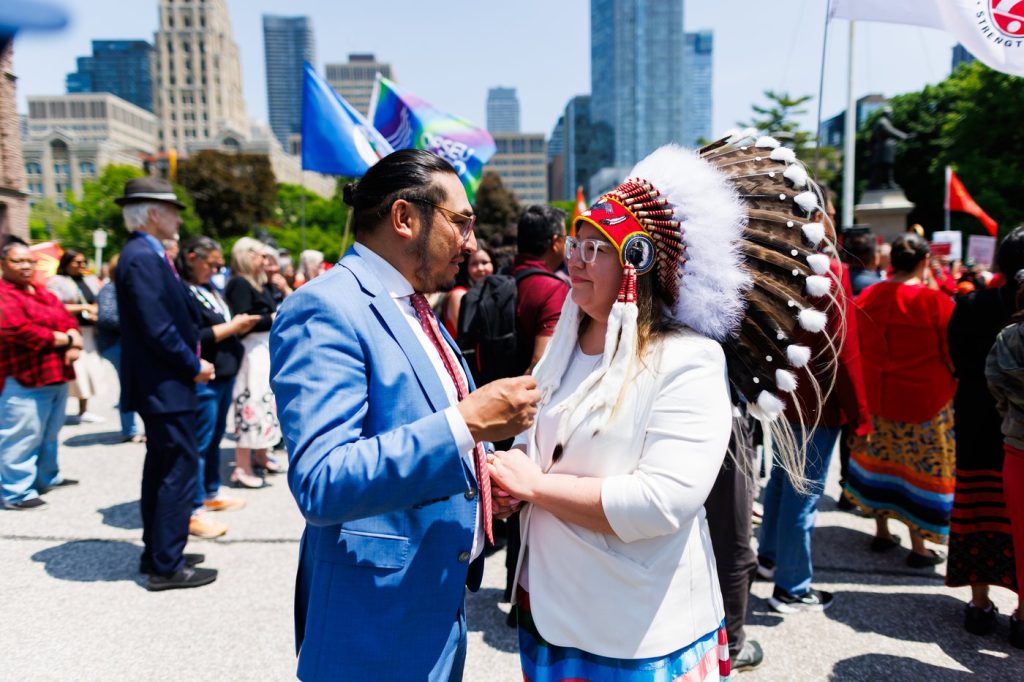OTTAWA – The Assembly of First Nations (AFN) is set to convene an emergency meeting to address the implications of new federal legislation poised to expedite approvals for major infrastructure projects. National Chief Cindy Woodhouse Nepinak has expressed her alarm regarding the potential adverse impacts this proposed bill may have on consultations with First Nations. Her concerns were heightened following a recent meeting with Prime Minister Mark Carney, where discussions centered around the government's intentions behind the legislation.
Nepinak voiced her apprehensions about the federal government's approach to consultation with Indigenous Peoples, labeling recent remarks from various federal ministers as "disheartening." Notably, Crown-Indigenous Relations Minister Rebecca Alty conveyed to The Canadian Press that efforts to bridge the infrastructure gap faced by First Nations would not be categorized as "nation-building" under the new legislation. Additionally, Justice Minister Sean Fraser asserted that First Nations would not possess a "veto" over infrastructure developments, further escalating tension surrounding the bill.
Former National Chief Phil Fontaine underscored the urgency of these discussions by calling for the emergency meeting earlier this week. He criticized Canadian governments for what he perceives as ongoing violations of Indigenous rights, emphasizing the need for a collective response from First Nations leadership. This gathering is expected to provide a platform for leaders to strategize in light of the potential legal ramifications of the legislation, which may set a precedent for future interactions between the federal government and Indigenous communities.
In conjunction with the emergency meeting, the AFN executive committee will hold discussions to devise a comprehensive strategy prior to the annual general assembly scheduled for July. This assembly will serve as a critical juncture for First Nations leaders to formalize their positions on the legislation and address overarching concerns regarding consultation practices.
The proposed bill has drawn sharp criticism due to its implications on the duty to consult Indigenous Peoples, a fundamental aspect of Canada’s obligations under law and treaty. As the situation continues to develop, First Nations leaders are mobilizing to ensure their voices are heard in discussions surrounding infrastructure and development that could affect their communities. The outcomes of these meetings and the government's legislative actions will play a pivotal role in shaping the future relationship between the federal government and First Nations across Canada.











